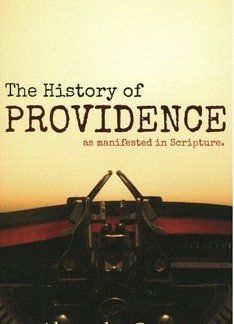The history of providence
Alexander Carson
Banner of Truth, 248 pages, £7.50
ISBN: 978-1-84871-175-4
Star Rating : 3
I write this at a time of family bereavement and following serious family illness and conflict in the Evangelical Reformed scene. Belief in a sovereign God and his providential purposes is a firm anchor.
What does providence mean? This 150-year-old book fails to define it, perhaps because at that time a definition was not needed.
Wayne Grudem in his Systematic theology writes (p. 315): ‘God is continually involved with all created things in such a way that he (1) keeps them existing and maintains the properties with which he created them; (2) cooperates with created things in every action, directing their distinctive properties to cause them to act as they do; and (3) directs them to fulfil his purposes’.
Contrast that with the secular mind-set of chance, coincidence and fate. Do we confine ‘DV’ to history? Or do we regard a difficult circumstance or person as an opportunity to grow in grace?
This book looks at the history of providence, as recorded in the Bible from Genesis to Revelation, in 139 sections. The account used in section 12, ‘Success of Abraham’s servant in seeking a wife for his master’s son’ (Genesis 24), is well known. More controversially, in section 17 entitled ‘Transference of the blessing of Jacob’, Carson shows how God overrules sinful acts to achieve his purposes.
In covering the New Testament, in section 96 entitled ‘Appointment at the watch of the tomb of Jesus’ (Matthew 27:62), Carson demonstrates the historicity of the resurrection. Elsewhere, the author shows that even errors within the early church provided an opportunity for positive teaching, from which we benefit.
Some of the language is naturally antiquated — ‘Whigs’, ‘Tories’ and ‘Mohamatans’ are referred to. The exhaustive nature of the book does leads to some repetition. These factors may limit its usefulness and readership, but those that persevere with it will profit.
Kerry Orchard
Cardiff




